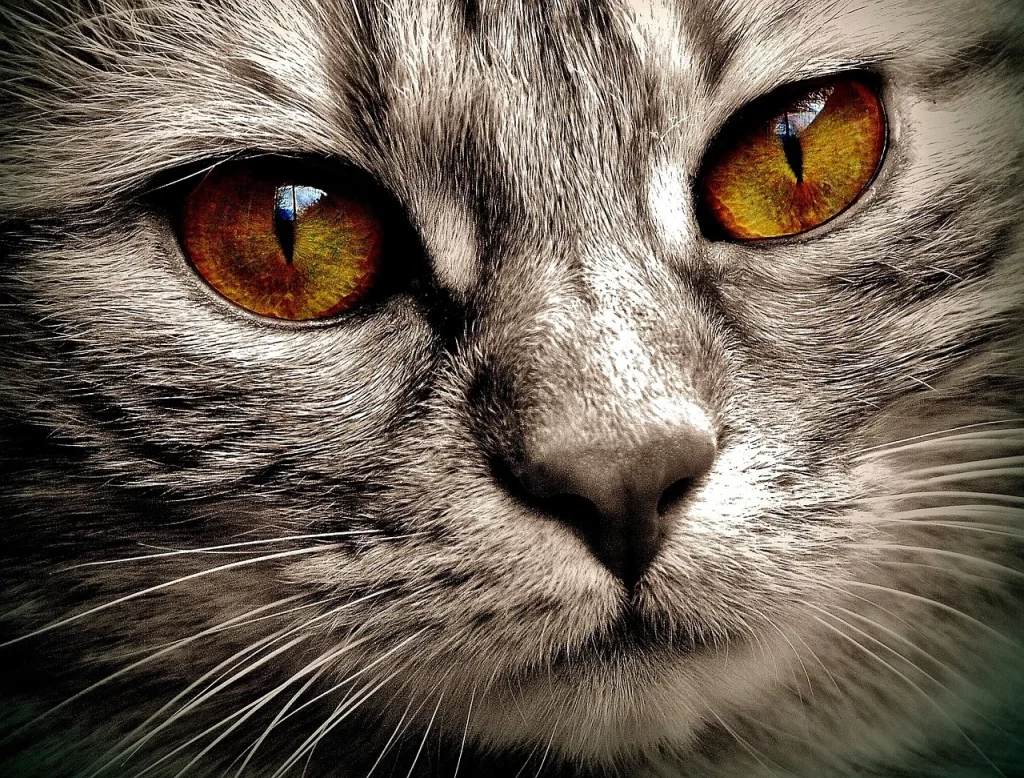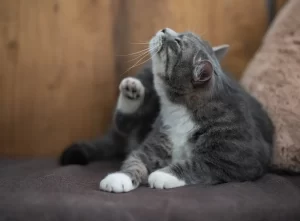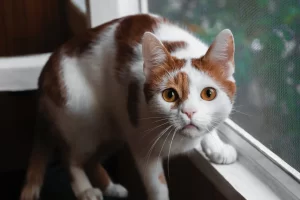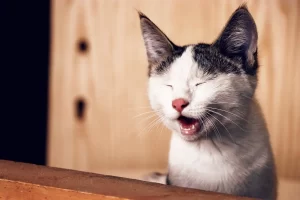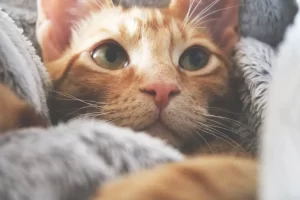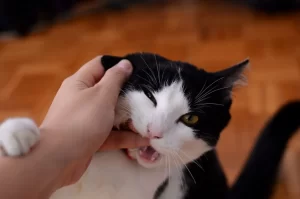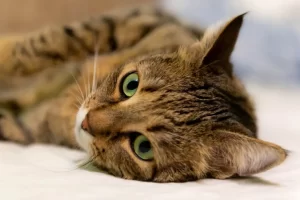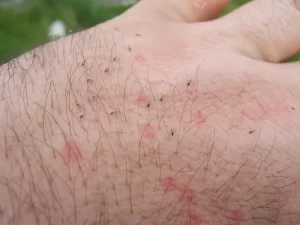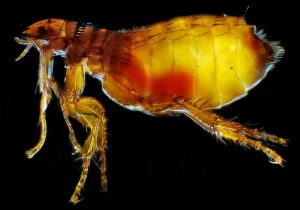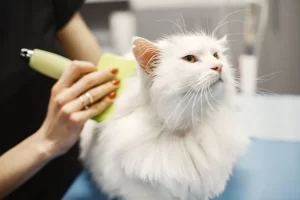If you are a cat owner, you know how distressing it can be to see your furry friend suffer from a swollen face. While there are many causes of a swollen face in cats, ranging from insect bites to dental issues, the good news is that there are several home remedies that can help alleviate the swelling and discomfort. In this article, we will discuss some effective home remedies for cat swollen face that you can try at home, as well as important considerations to keep in mind before attempting any home treatments. With the right care and attention, you can help your cat feel more comfortable and get back to their happy, healthy self.
Table of Contents
ToggleUnderstanding cat’s swollen face
A cat swollen face is a condition in which the face of a cat appears enlarged, puffy, or inflamed. Swelling can occur in various areas of the face, including the eyes, ears, mouth, nose, and cheeks. This condition can be caused by various factors, including infections, allergies, injuries, dental problems, tumors, and other underlying medical conditions. A cat swollen face can be uncomfortable for the cat and can also be a sign of a serious health issue. Therefore, it is essential to identify the underlying cause and seek appropriate treatment. Home remedies can be helpful in providing relief from the symptoms of cat swollen face, but it is important to consult a veterinarian for proper diagnosis and treatment.
Causes of cat swollen face
There are several possible causes of a cat swollen face. Some of the most common causes include:
- Infections: Infections such as abscesses, bacterial infections, and fungal infections can cause swelling in various areas of the cat’s face. Abscesses are a common cause of swelling in cats, and they usually result from bite wounds or scratches from other animals.
- Allergies: Cats can have allergies to various substances, including food, pollen, dust, and insect bites. Allergies can cause swelling in the face, eyes, and ears. Allergic reactions can be severe and require immediate medical attention.
- Dental problems: Dental issues such as tooth abscesses (read more about tooth abscesses and proper home remedies here), gingivitis, and periodontal disease can lead to swelling in the face, particularly around the mouth and jaw.
- Trauma: Injuries to the face can cause swelling, bruising, and bleeding. Trauma can result from fights with other animals, accidents, or falls.
- Tumors: Tumors in the head and neck area can cause swelling and discomfort in the cat’s face.
- Insect bites or stings: Bites or stings from insects such as bees, wasps, or spiders can cause localized swelling in the area of the bite or sting.
- Sinusitis: Sinusitis is an inflammation of the sinuses, which can cause swelling and pain in the cat’s face. Consider trying these natural remedies to help your cat with sinus infections.
- Facial paralysis: Damage to the nerves that control facial muscles can cause one side of the cat’s face to appear swollen.
- Other underlying medical conditions: Certain medical conditions such as kidney disease, heart disease, and autoimmune disorders can cause swelling in various parts of the cat’s body, including the face.
Try to identify the underlying cause of cat swollen face in order to determine the appropriate treatment. If you notice your cat’s face is swollen, it is recommended to seek veterinary care to diagnose and treat the underlying condition.
Identifying cat swollen face
It can be relatively easy to tell if your cat has a swollen face if you know what to look for. Here are some signs to watch out for:
- Obvious swelling: Look for any visible swelling or puffiness in your cat’s face, particularly around the eyes, ears, nose, or mouth. If you notice any unusual bumps or lumps, this could also indicate swelling.
- Changes in appearance: Swelling can cause changes in the way your cat’s face looks, including asymmetry or a lopsided appearance.
- Discomfort or pain: If your cat has a swollen face, it may be uncomfortable or in pain. Look for signs such as pawing at the face, excessive rubbing, or vocalizations.
- Changes in behavior: Your cat’s behavior may change if they are experiencing discomfort or pain. Watch for any changes in eating or drinking habits, sleeping patterns, or play behavior.
- Other symptoms: Depending on the cause of the swelling, your cat may exhibit other symptoms such as redness, discharge from the eyes or nose, sneezing, coughing, or difficulty breathing.
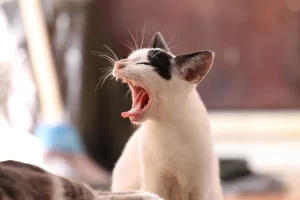
Diagnosing your cat’s swollen face
Diagnosing the cause of a cat’s swollen face can involve several methods, depending on the underlying condition. Here are some common diagnostic methods used by veterinarians:
- Physical examination: A veterinarian will perform a physical examination of the cat, paying particular attention to the areas of swelling. They will also check for any other symptoms, such as discharge from the eyes or nose, coughing, or difficulty breathing.
- Medical history: The veterinarian will ask questions about the cat’s medical history, including any past illnesses or injuries, recent changes in behavior, and current medications or supplements.
- Blood tests: Blood tests can help identify underlying medical conditions that may be causing the swelling, such as kidney disease, liver disease, or autoimmune disorders.
- Imaging tests: Imaging tests such as X-rays, CT scans, or ultrasounds can help identify tumors or other abnormalities that may be causing the swelling.
- Biopsy: In some cases, a biopsy may be necessary to determine the cause of the swelling. A small tissue sample is taken from the affected area and examined under a microscope to identify any abnormalities.
- Allergy testing: If the veterinarian suspects an allergy is causing the swelling, they may recommend allergy testing to identify the specific allergen.
The diagnostic method used will depend on the suspected underlying cause of the swelling.
home remedies for cat swollen face
Home remedies for a cat swollen face can be grouped into different categories based on their properties and application. These remedies can help to reduce inflammation, soothe the skin, and alleviate discomfort. However, it is important to note that home remedies should not replace veterinary care. Here are some categories of home remedies that can be used to help reduce swelling in cats:
- Compresses: Warm compresses and cold compresses can be used to reduce inflammation and increase blood flow. Applying a warm or cold compress to the affected area for 5-10 minutes several times a day can help to reduce swelling.
- Natural remedies: Natural remedies such as aloe vera gel, witch hazel, and chamomile tea can help to reduce inflammation and soothe the skin. These remedies can be applied topically to the affected area several times a day.
- Herbal remedies: Herbal remedies such as turmeric, calendula, and lavender can help to reduce inflammation and promote healing. These herbs can be infused in warm water to make a tea or applied topically as a salve.
- Essential oils: Essential oils such as lavender, tea tree, and frankincense can be used to reduce inflammation and promote healing. However, it is important to use essential oils with caution and to dilute them before applying them to the skin.
- Diet: A healthy diet can help to support the immune system and reduce inflammation. Including anti-inflammatory foods such as salmon, spinach, and blueberries in your cat’s diet can help to reduce swelling.
- Massage: Gently massaging the affected area can help to increase blood flow and reduce inflammation. Use gentle circular motions with your fingertips to massage the swollen area for several minutes several times a day.
- Acupuncture: Acupuncture can help to reduce inflammation and promote healing. It involves the insertion of small needles into specific points on the body to stimulate blood flow and reduce pain.
- Homeopathy: Homeopathic remedies such as Arnica and Belladonna can help to reduce inflammation and promote healing. These remedies are available in liquid or pellet form and should be used under the guidance of a veterinarian trained in homeopathy.
- Hydrotherapy: Hydrotherapy involves the use of water to reduce swelling and promote healing. Soaking the affected area in warm water or using a water-based therapy such as a whirlpool bath can help to reduce inflammation.
- Stress reduction: Stress can exacerbate inflammation and delay healing. Providing a calm and stress-free environment for your cat can help to reduce swelling and promote healing. This can include providing a quiet space, using calming pheromones, and avoiding stressful situations.
Using compresses for cat swollen face: Benefits and methods
Compresses are a type of home remedy that can be used to reduce inflammation and swelling in cats. Both warm and cold compresses can be effective in reducing swelling, depending on the underlying cause of the swelling.
Benefits:
- Reduce inflammation and swelling
- Increase blood flow to the affected area
- Provide pain relief
Instructions for applying a warm compress:
- Soak a clean washcloth in warm water.
- Wring out the excess water.
- Place the warm compress on the affected area for 5-10 minutes.
- Repeat several times a day as needed.
Instructions for applying a cold compress:
- Wrap a few ice cubes in a clean towel or use a bag of frozen vegetables.
- Place the cold compress on the affected area for 5-10 minutes.
- Remove the compress for a few minutes.
- Repeat several times a day as needed.
Precautions:
- Make sure the compress is not too hot or too cold, as extreme temperatures can damage the skin.
- Do not apply a compress directly to an open wound or area of broken skin.
- Do not apply a compress for too long, as prolonged exposure to extreme temperatures can damage the skin.
5 natural remedies for cat swollen face you can try at home
Natural remedies can be used to reduce inflammation and soothe the skin in cats with swollen faces. Here are some examples of natural remedies:
- Aloe vera gel: Aloe vera gel can be applied topically to the affected area to reduce inflammation and promote healing. The gel can be extracted directly from an aloe vera plant or purchased in a gel form from a health food store. Apply a thin layer of aloe vera gel to the affected area several times a day.
- Witch hazel: Witch hazel can be used to reduce inflammation and soothe the skin. It is available in a liquid form and can be applied topically to the affected area with a cotton ball or soft cloth several times a day.
- Chamomile tea: Chamomile tea can be used to reduce inflammation and soothe the skin. Brew a cup of chamomile tea and allow it to cool. Soak a cotton ball or soft cloth in the tea and apply it to the affected area several times a day.
- Coconut oil: Coconut oil can be used to moisturize the skin and reduce inflammation. Apply a small amount of coconut oil to the affected area and massage it gently into the skin.
- Apple cider vinegar: Apple cider vinegar can be used to reduce inflammation and soothe the skin. Mix equal parts apple cider vinegar and water, and apply the mixture to the affected area with a cotton ball or soft cloth several times a day.
Precautions:
- Always use pure aloe vera gel, as some products may contain added ingredients that can be harmful to cats.
- Witch hazel should be used with caution, as some cats may be allergic to it.
- Chamomile tea and apple cider vinegar should be used with caution, as some cats may be allergic to them.
Overall, natural remedies can be a safe and effective way to help reduce swelling and soothe the skin in cats with swollen faces. However, it is important to use these remedies under the guidance of a veterinarian and to monitor your cat’s response to the treatment. If your cat’s swelling does not improve or worsens, seek veterinary care immediately.
Herbal remedies for cat swollen face: Natural solutions to soothe your feline friend
Herbal remedies can be used to reduce inflammation and promote healing in cats with swollen faces. Here are some examples:
- Turmeric: Turmeric has anti-inflammatory and antioxidant properties that can help reduce swelling and promote healing. It can be given to cats in a powder or capsule form, or applied topically as a paste made from turmeric powder and water.
- Lavender: Lavender has anti-inflammatory and calming properties that can help reduce swelling and soothe the skin. It can be applied topically to the affected area as an essential oil diluted in a carrier oil, such as coconut oil.
- Calendula: Calendula has anti-inflammatory properties and can be used to reduce swelling and promote healing. It can be applied topically to the affected area in a cream or ointment form.
- Chamomile: Chamomile has anti-inflammatory and calming properties and can be used to reduce swelling and soothe the skin. It can be brewed as a tea and applied topically to the affected area with a cotton ball or soft cloth.
- Echinacea: Echinacea has immune-boosting properties and can help the body fight off infection. It can be given to cats in a tincture or capsule form.
- Goldenseal: Goldenseal has anti-inflammatory and antimicrobial properties and can be used to reduce swelling and fight infection. It can be given to cats in a tincture or capsule form.
- Yarrow: Yarrow has anti-inflammatory properties and can be used to reduce swelling and promote healing. It can be brewed as a tea and applied topically to the affected area with a cotton ball or soft cloth.
Precautions:
- Herbal remedies should always be used under the guidance of a veterinarian, as some herbs can be toxic to cats.
- It is important to use only high-quality herbs from a reputable sources.
Should you use essential oils for a cat swollen face?
Essential oils have become increasingly popular in recent years as a natural remedy for a variety of health issues in both humans and animals. However, it is important to note that essential oils can be toxic to cats and should be used with caution.
While some essential oils may have properties that can help reduce inflammation and promote healing in cats with swollen faces, it is important to consult with a veterinarian before using any essential oils on your cat. The following are some general guidelines and precautions for using essential oils on cats:
- Always use high-quality essential oils from a reputable source.
- Use only the recommended amount and dilute the essential oil in a carrier oil before applying it to your cat’s skin.
- Do not apply essential oils directly to your cat’s face, and avoid getting essential oils in your cat’s eyes, nose, or mouth.
- Do not use essential oils on pregnant cats, kittens, or cats with certain medical conditions or sensitivities.
- Be aware that some essential oils can be toxic to cats, even in small amounts. Common toxic essential oils for cats include tea tree, citrus, clove, peppermint, and cinnamon.
In general, it is best to avoid using essential oils on your cat’s swollen face and to stick with other natural remedies that are known to be safe for cats. If you are considering using essential oils on your cat, be sure to consult with a veterinarian first and always monitor your cat’s response to the treatment closely. If you notice any adverse reactions, such as vomiting, diarrhea, or difficulty breathing, seek veterinary care immediately.
Nutrition for a healthier cat: Managing swollen faces with diet
Diet can play a significant role in reducing inflammation and promoting healing in cats with swollen faces. Feeding your cat a healthy, balanced diet that is rich in anti-inflammatory nutrients can help reduce swelling and promote overall health and wellness.
Some foods that are known to be beneficial for reducing inflammation in cats include:
- Omega-3 fatty acids: These essential fatty acids can help reduce inflammation and promote healthy skin and coat. Good sources of omega-3s for cats include fish oil, salmon, sardines, and tuna.
- Antioxidants: Antioxidants help protect the body against free radical damage and inflammation. Good sources of antioxidants for cats include blueberries, cranberries, spinach, and broccoli.
- Lean protein: Lean protein is essential for maintaining muscle mass and supporting the immune system. Good sources of lean protein for cats include chicken, turkey, fish, and eggs.
- Bone broth: Bone broth is rich in collagen, which can help reduce inflammation and promote healing. It is also a good source of hydration for cats with swollen faces.
In addition to feeding your cat a healthy, balanced diet, it is important to ensure that they are drinking enough water to stay hydrated. Dehydration can worsen inflammation and slow the healing process. Providing your cat with fresh, clean water at all times and encouraging them to drink regularly can help ensure that they stay hydrated.
Massaging your way to a healthier cat: Tips for relieving a swollen face
Massage can be a helpful natural remedy for reducing swelling and promoting healing in cats with swollen faces. Gentle massage can help increase blood flow and circulation to the affected area, which can help reduce inflammation and promote lymphatic drainage.
When massaging your cat’s swollen face, it is important to use gentle, circular motions with your fingertips. Avoid applying too much pressure or causing any pain or discomfort to your cat. You may also want to use a warm compress or towel on the affected area before massaging to help relax the muscles and increase blood flow.
In addition to helping reduce inflammation and promote healing, massage can also be a helpful way to bond with your cat and provide them with comfort and relaxation during a stressful time.
Acupuncture therapy: A holistic approach to treatment
Acupuncture is an alternative therapy that involves the insertion of thin needles into specific points on the body to promote healing and balance. While there is limited research on the use of acupuncture in cats with swollen faces, it is thought to be a potentially helpful natural remedy for reducing inflammation and promoting healing.
Acupuncture is generally considered safe for cats, but it should only be performed by a licensed and trained veterinary acupuncturist. Your veterinarian can help you find a qualified acupuncturist in your area and determine whether acupuncture may be a helpful treatment option for your cat.
During an acupuncture session, the acupuncturist will insert thin, sterile needles into specific points on your cat’s body. The needles may be left in place for several minutes to promote healing and balance. Some cats may experience mild discomfort or relaxation during the session, while others may remain calm and relaxed throughout.
Exploring homeopathic remedies
Homeopathy is a form of alternative medicine that uses highly diluted substances to stimulate the body’s natural healing processes. While there is limited research on the use of homeopathy in cats with swollen faces, it is thought to be a potentially helpful natural remedy for reducing inflammation and promoting healing.
Homeopathic remedies are selected based on the individual cat’s symptoms and overall health. The remedies are highly diluted, which means that they do not contain any measurable amount of the original substance. Instead, the remedies are thought to work by stimulating the body’s natural healing mechanisms.
Some common homeopathic remedies that may be helpful for cats with swollen faces include Arnica, Belladonna, and Apis mellifica. These remedies are available in pellet or liquid form and can be administered orally or topically.
Reducing stress in cats: Tips and techniques
Stress reduction is an important part of managing a cat’s swollen face. Stress can weaken the immune system and exacerbate inflammation, making it harder for the body to heal. By reducing stress, you can help support your cat’s overall health and improve their chances of a speedy recovery.
Some helpful strategies for reducing stress in cats include providing a calm and quiet environment, offering plenty of opportunities for play and exercise, and providing comfort and support through cuddling and grooming.
You may also want to consider using natural remedies, such as pheromone sprays or diffusers, to help reduce stress and promote relaxation. These products release calming scents that can help soothe and comfort your cat during a stressful time.
Home remedies’ effectiveness timeline
The length of time it takes for home remedies to work on a cat’s swollen face can vary depending on several factors, such as the cause and severity of the swelling and the type of home remedy used.
Some home remedies, such as cold compresses or massage, may provide immediate relief of swelling and discomfort. Others, such as herbal remedies or dietary changes, may take longer to show results and may require continued use over several days or weeks.
Tips for preventing swollen face in cats: A guide for pet owners
Preventing a cat’s swollen face involves taking measures to maintain their overall health and well-being. Here are some tips that can help prevent swollen face in cats:
- Regular veterinary check-ups: Take your cat for regular check-ups with the veterinarian to detect and treat any health issues that can lead to swollen face. Read more on How often should I take my cat to the vet?
- Proper diet: Feed your cat a balanced and healthy diet that meets their nutritional needs, as poor nutrition can weaken their immune system and make them more susceptible to infections.
- Clean environment: Keep your cat’s environment clean and hygienic to prevent infections and diseases that can cause swollen face.
- Regular grooming: Regularly groom your cat to prevent skin irritation and infections that can cause swelling.
- Parasite prevention: Use appropriate parasite prevention measures, such as flea and tick control, to prevent infections and diseases that can cause swollen face.
- Safety precautions: Ensure that your cat is safe from hazards that can cause injuries, such as sharp objects or dangerous chemicals.
Medications, supplements, and over-the-counter products
Here are some examples of medications, supplements, and over-the-counter products that may be recommended by a veterinarian for the treatment of cat swollen face:
- Antibiotics: Antibiotics are prescribed to treat bacterial infections that may be causing the swollen face. Examples of antibiotics include amoxicillin, clindamycin, and enrofloxacin.
- Steroids: Steroids may be prescribed to reduce inflammation and swelling. Examples of steroids include prednisolone and dexamethasone.
- Antihistamines: Antihistamines may be recommended if the swelling is due to an allergic reaction. Examples of antihistamines include diphenhydramine, loratadine, and cetirizine.
- Pain relievers: Pain relievers may be given to reduce pain and discomfort associated with swollen face. Examples of pain relievers include buprenorphine and meloxicam.
- Probiotics: Probiotics may be recommended to improve gut health and boost the immune system, which can aid in the healing process. Examples of probiotics include FortiFlora and Proviable.

Cat swollen face after fight
If your cat has a swollen face after a fight, it is important to take them to a veterinarian as soon as possible. The swelling could be a result of an infection or injury that requires medical attention.
The veterinarian may prescribe medication such as antibiotics, pain relievers, or anti-inflammatory drugs to reduce the swelling and promote healing. In addition to medications, there are some home remedies that you can use to help alleviate your cat’s discomfort and promote healing.
You can apply a cold compress, such as a towel soaked in cool water, to the affected area to reduce swelling and pain. Natural remedies such as aloe vera gel or coconut oil may also help soothe and heal the skin.
It is important to keep your cat’s wounds clean and monitor them for signs of infection, such as redness, swelling, or discharge. You can clean the wounds with a mild antiseptic solution and apply a natural antibiotic to help prevent infection.
To prevent future fights, make sure your cat is spayed or neutered, and keep them indoors or supervised when outside. Providing plenty of toys and activities can also help alleviate boredom and reduce the likelihood of aggressive behavior. However, it is important to consult with your veterinarian before using any home remedies, especially if your cat’s swollen face is severe.
Cat swollen face: Bee sting
If your cat has a swollen face due to a bee sting, it is important to take immediate action to prevent further swelling and discomfort. The first step is to remove the stinger if it is still present in the skin. You can use a pair of tweezers to gently grasp the stinger and pull it out in the same direction it went in.
Next, you can apply a cold compress to the affected area to reduce swelling and pain. You can use a towel soaked in cool water or even a bag of frozen vegetables wrapped in a towel. It is important to keep the compress on for about 10 to 15 minutes at a time and repeat this process several times a day.
You can also use natural remedies such as aloe vera gel or diluted vinegar to soothe the skin and reduce inflammation. If your cat is experiencing severe discomfort, you can also give them a dose of antihistamine medication, but it is important to consult with a veterinarian first to determine the appropriate dosage.
In some cases, a bee sting can cause an allergic reaction in your cat, which can be life-threatening. Signs of an allergic reaction include difficulty breathing, vomiting, diarrhea, and swelling of the face or throat. If you notice any of these symptoms, seek immediate veterinary care.
To prevent future bee stings, keep your cat indoors during times when bees are most active, and avoid leaving food or water outside. You can also use natural bee repellents such as essential oils or citronella candles.
Cat swollen face: Cancer
If you suspect that your cat’s swollen face may be due to cancer, it is important to seek veterinary care as soon as possible. Your veterinarian will perform a thorough examination and may recommend diagnostic tests such as blood work, imaging, or a biopsy to determine the underlying cause of the swelling.
Treatment options for cancer will depend on the type and severity of the cancer, as well as your cat’s overall health. Treatment may include surgery to remove the tumor, radiation therapy, chemotherapy, or a combination of these approaches. If your cat has cancer, you may be able to help him or her at home by taking advantage of these homeopathic cancer treatments.
In addition to conventional medical treatment, there are some complementary therapies that may be helpful in managing your cat’s symptoms and improving their quality of life. These may include acupuncture, massage, and dietary changes.
Cat swollen face: One side
If your cat’s swollen face is only on one side, it may be caused by a variety of issues including dental abscesses, ear infections (learn more about ear infection and proper remedies here), or even a foreign object stuck in the mouth or cheek. In some cases, the swelling may be related to an injury or trauma to the area.
It is important to take your cat to a veterinarian to determine the underlying cause of the swelling. Your veterinarian will perform a thorough physical examination and may recommend diagnostic tests such as blood work, imaging, or a biopsy to identify the root cause of the problem.
Treatment options will depend on the underlying cause of the swelling. Depending on the severity of the issue, your veterinarian may recommend medications such as antibiotics or anti-inflammatory drugs, dental work, or surgery to remove the affected area.
Cat swollen face: No appetite
If your cat has a swollen face and no appetite, it is possible that the swelling is causing discomfort and pain, which is affecting their desire to eat. In this case, it is important to take your cat to the veterinarian as soon as possible to determine the underlying cause of the swelling and to provide appropriate treatment.
Loss of appetite can also be a symptom of more serious health conditions, such as kidney disease, liver disease, or cancer. Your veterinarian will perform a thorough physical examination and may recommend diagnostic tests such as blood work or imaging to identify the root cause of the issue.
In addition to medical treatment, there are some things you can do at home to help encourage your cat to eat. For example, offering wet food, warming the food slightly, or providing a variety of tempting flavors may help stimulate their appetite. You can also try offering small meals throughout the day rather than one or two larger meals.
Cat swollen face: Allergy

